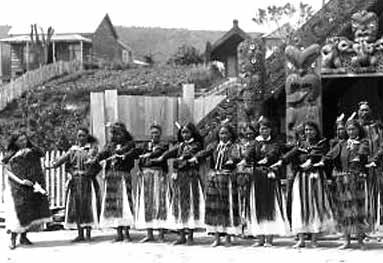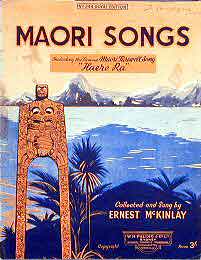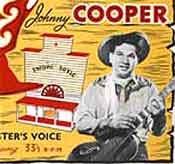|
The three verses below comprise the original version of an action song
collected and recorded by Ernest McKinlay at Whakarewarewa in the early
1930s. |
 Action song at Whakarewarewa |

|
Me
he manu rere ahau e, Haere,
haere ra e hine |
Sweetheart,
were I e'er so small a bird, Swiftly to your loving arms I'd fly, There to hold you and caress you, My beloved, turn to me. Tho' my body still is sleeping, Yet my spirit hovers near thee, Still for you my heart is beating Oh my darling come to me. Now a long farewell e hine Must you go away and leave me Here alone in grief I'm pining Sobbing for you tenderly. | |
Note 1 Wāke. A word borrowed from English. Literally Walking. Compare this with I te unga o ngā waka ka wāke mai ki konei. When the canoes landed they walked here. Tai Tokerau Online Maori Dictionary. | ||

